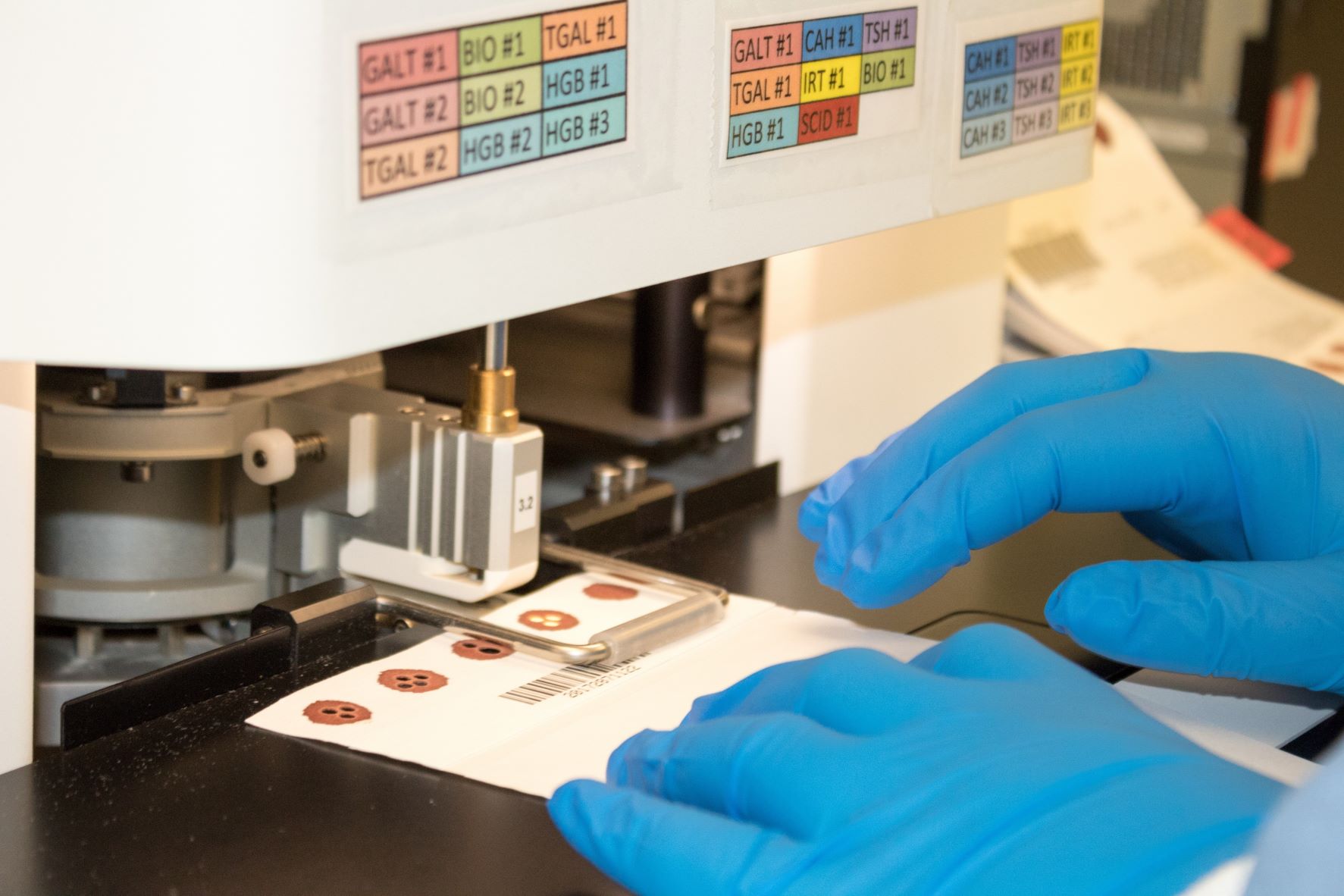2025 Public Health Laboratory Newsroom
Baby’s Deadly Disorder Uncovered in Part Due to Minnesota Newborn Screening
In 2024, a newborn from Minnesota was diagnosed with a rare congenital disorder called Krabbe disease. The infantile type of Krabbe disease does not show symptoms before it has caused irreversible brain damage. Seizures, blindness, deafness, and death within the first two years of life are typical.
There are treatments available for Krabbe disease, but they must be initiated before symptoms begin. It is one of many conditions that can be diagnosed in time for treatment or intervention after newborn screening flags potential cases.
 The Minnesota Newborn Screening Program analyzed blood spots taken from the aforementioned newborn’s heel, as it does for almost every baby born in Minnesota. Screening the blood spots for more than 60 conditions yielded one positive result that indicated a possibility of Krabbe disease.
The Minnesota Newborn Screening Program analyzed blood spots taken from the aforementioned newborn’s heel, as it does for almost every baby born in Minnesota. Screening the blood spots for more than 60 conditions yielded one positive result that indicated a possibility of Krabbe disease.
A newborn screening test cannot diagnose a condition alone. The baby’s sample was quickly sent to the Mayo Clinic for further analysis. Again, it tested positive for Krabbe disease.
Because Krabbe disease is so serious, every day counts. As soon as she got the test results, a Minnesota Newborn Screening Program genetic counselor informed the baby’s primary care provider and recommended follow-up. The primary care provider then quickly contacted a geneticist with the University of Minnesota, who told the baby’s parents to bring their entire family to the M Health Fairview Masonic Children's Hospital immediately. It happened to be a major holiday, so both the health care professionals and the family abandoned celebrations.
The primary treatment for the infantile type of Krabbe disease is a bone marrow transplant. Preparations for transplant must begin before a diagnosis is finalized. The first task is to find a bone marrow donor with matching human leukocyte antigens (HLA). Once a donor is found, the transplant should begin within a month of the diagnosis.
The baby received the bone marrow transplant and remains healthy, with normal developmental progress and no symptoms of Krabbe disease. The baby is also undergoing a clinical trial for a gene therapy that should be even more effective in preventing brain damage.
Minnesota doctor’s discovery key to Krabbe disease screening
Until recently, newborn screening for Krabbe disease was unreliable. Then a group of scientists led by the Mayo Clinic’s Dr. Dietrich Matern, M.D., Ph.D., created a lab test for a chemical called psychosine, which can indicate a very strong chance of having Krabbe disease.
Because of this discovery and other evidence, it became possible to add Krabbe disease to the Minnesota Newborn Screening Panel, the list of conditions screened for in the state, in August 2023. On July 1, 2024, Krabbe disease was added to the federal Recommended Uniform Screening Panel (RUSP), the list of conditions that the Secretary of the Department of Health and Human Services (HHS) recommends that all states screen for.
The Minnesota Newborn Screening Program began screening newborns for Krabbe disease in February 2024. Since its first tests for phenylketonuria (PKU) in 1964, the Minnesota Newborn Screening Program has helped hundreds of babies with treatable conditions.
Return to the 2025 Public Health Laboratory Newsroom.